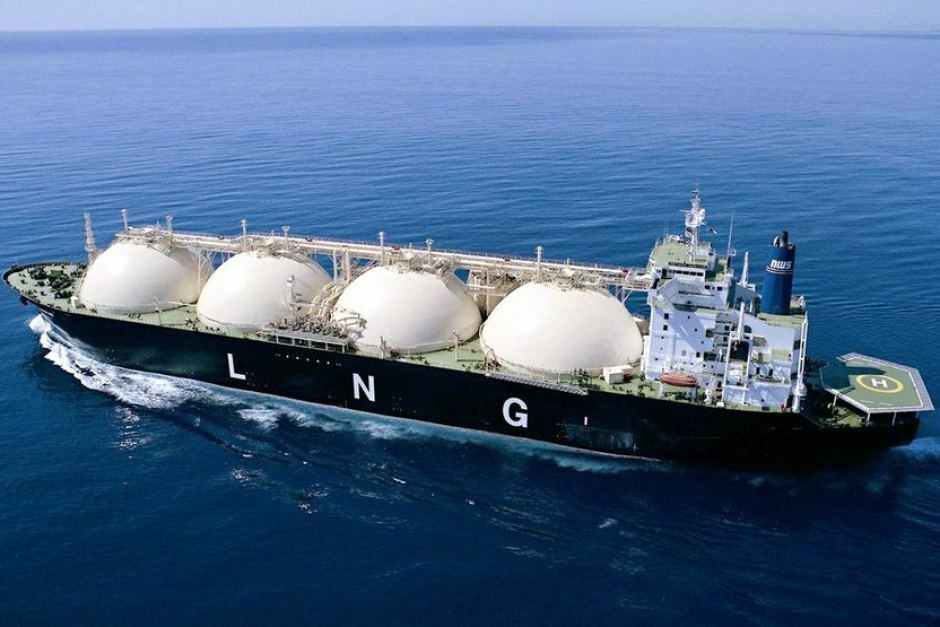
Qatar aims to be the World's number one LNG exporter
Recently, Qatar's Energy Minister Saadi al-Kaabi spoke about new plans for the development of the gas sector. Doha plans to increase gas production by another 13%, which will allow Qatar to control a quarter of the world's liquefied natural gas (LNG) exports. Doha, of course, expects further significant growth in Qatar’s income and influence on the international stage. If the targets are met, by 2030 LNG production in Qatar will almost double from the current 77 million tons, to 142 million tons. In oil terms, this would mean production of 7.25 million b/d. Moreover, most of the natural gas compressed to a liquid state will be exported.
Bloomberg draws attention to the fact that the growth figures are not final, but if they are revised, it will only be upward, because Saadi Kaabi emphasized at a press conference that if Doha sees an increase in demand, production could be increased even more. By the way, Qatari gas workers are confident that demand for LNG will remain high for many years to come. Doha does not hide the fact that the decision to launch new large projects was made after the White House temporarily stopped issuing licenses for the export of American LNG. Naturally, the Qataris could not miss this opportunity to strengthen their position in the global gas market and push aside their competitors: the United States and Australia.
It should also be borne in mind that Qatar already has one of the highest GDP per capita in the world, with 77 million tons of LNG. In 2022, hydrocarbons accounted for almost 44% of the tiny Gulf coast state's GDP, according to Moody's Investors Service. By 2030, if the targets are met, Qatar's GDP will grow, according to Bloomberg estimates, by approximately another $31 billion per year. Kaabi, by the way, confirmed that Doha expects revenue growth of several tens of billions of dollars, but did not name the exact amount. In short, the continued growth of Qatar's gas sector will make what is already one of the richest countries on the planet perhaps the richest.
Al Kaabi emphasized in an interview with Bloomberg that Qatar's main export is gas.
He stressed the importance of ensuring a higher standard of living for future generations. Qatar's impressive progress is noteworthy, considering it was once considered an energy dwarf compared to its neighbours Saudi Arabia, Kuwait, and the United Arab Emirates. The Northern gas field, one of the largest in the world and located in Qatar, was discovered in 1971. However, during that time, geologists were primarily focused on oil rather than gas. As a result, progress on the field was slow for the next 25 years. In 1996, everything changed with the construction of the first LNG terminal in Qatar, which allowed for the export of liquefied natural gas and led to rapid growth in the gas industry.
Gas is currently the preferred fossil fuel due to its relative purity compared to oil and coal. This makes it essential during the transition to renewable energy sources. Gas buyers are subject to the terms dictated by Qatari gas workers, who work exclusively under long-term contracts lasting 15-20 years. State energy company QatarEnergy has already signed long-term contracts with 20 countries, some of which extend beyond 2050. This enables him to avoid worrying about a decrease in demand. Many contracts were signed in the last quarter of 2023 after some initial hesitation.
However, not everyone agrees with the Qatari economists' forecasts regarding the sustained high demand for LNG. For instance, the International Energy Agency (IEA) predicts that gas demand will reach its peak by 2030, after which it will start to decline. Some Shell economists believe that gas demand has already peaked in certain markets, such as Europe and Japan. Over the past five months, forecasters have been focused on the conflict in the Gaza Strip and Houthi attacks on ships in the Red Sea, which have had a negative impact on energy exports in the region, including gas.
However, the Qataris rely on their calculations and accurate forecasts. Additionally, they have achieved self-sufficiency in their economy with the lowest oil price in the region. Doha plans to increase this figure to $40 per barrel by 2026. Furthermore, any increase in gas exports will further reduce the price of oil, ensuring a deficit-free budget. For instance, in Saudi Arabia, a barrel of oil must cost at least $80 to maintain a deficit-free budget.
Although gas revenues enhance Doha's international standing, Qatar claims that they do not use them to achieve political goals. Qatar became the first Arab country to host the World Cup at the end of 2022 and is known as one of the most important and effective mediators in international conflicts. This is particularly evident in his diplomatic efforts during the Israel-Hamas conflict in the Gaza Strip.
All gas sales revenue is directed to the Qatar Sovereign Fund (QIA), which then allocates funds to specific projects and programs. The QIA has been increasing its investments in high-tech and healthcare sectors annually, although it tends to favour other countries due to the size of the Qatari economy. For instance, nearly 80% of QIA's investments last year were made in the USA and India.
